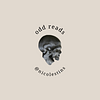You need to sign in or sign up before continuing.
Take a photo of a barcode or cover
adventurous
challenging
emotional
funny
informative
reflective
sad
medium-paced
Plot or Character Driven:
Character
Strong character development:
Yes
Loveable characters:
Yes
Diverse cast of characters:
Yes
Flaws of characters a main focus:
Complicated
Graphic: Misogyny
Moderate: Racism, Colonisation
Minor: Animal cruelty, Cancer, Death, Domestic abuse, Homophobia, Racial slurs, Grief, Car accident, Lesbophobia, War
Alice Walker is reputedly one of the most well-known, yet most difficult post-modern authors to read, and The Temple of My Familiar makes both of these reputations known. Why is it difficult? In an effort to present life, and I mean life as in the history of man (and other creatures) in this world throughout time, there's no doubt that the result of this feat would be a difficult read. Walker's novel travels in a non-linear way through time, covering South America, North America, Africa, and England, among others. With such an all-encompassing focus on "human" history, Walker can focus neither on one time period or one character.
Walker achieves this by use of a different ordering principle than we normally use to recognize time, i.e., past lives. She takes fantastic liberties with the presentation of the past and human origins, telling a matriarchal creation story where the men attempt the emulate the perfect art form of female childbirth and pregnancy. Walker also presents an arboreal past that is possibly an evolutionary history, and the most utopic of all the worlds in the novel.
With these stories and multi-faceted characters, Walker communicates that in every other person, there is a piece of ourselves and our histories, that from within one person, our entire past exists. She communicates the Jungian philosophy of the collective unconscious being connected back through time and culture in significant ways. It is with this that one of the characters, Mary Jane, claims that "we all touch each other's lives in ways we can't begin to imagine."
Such off-the-wall stories and complicated concepts add to the difficulty of the read while at the same time encouraging the readers to swallow a world that is so unlike their "normal" ones. This world of magic realism, an art form perfected by Walker and fellow writer, [b:Toni Morrison|6149|Beloved|Toni Morrison|http://photo.goodreads.com/books/1165555299s/6149.jpg|736076], is one that makes for a refreshing and engrossing read. The characters are unforgettable, the historical and visual backdrops breathtaking. Names like Carlotta, Fanny, Hal, Lulu, Suwelo, and Lissie will forever remain portraits of amazing people that live in my mind beyond Walker's intricate telling.
Suwelo himself speaks of the "rare people...[who are:] connected directly with life and not with its reflection." It is this ultimate person that I believe Walker wants to present, create and/or reach with the readers of this story. With this, Walker's confusing journey becomes almost a dramatization of how she feels the universe itself works.
Walker achieves this by use of a different ordering principle than we normally use to recognize time, i.e., past lives. She takes fantastic liberties with the presentation of the past and human origins, telling a matriarchal creation story where the men attempt the emulate the perfect art form of female childbirth and pregnancy. Walker also presents an arboreal past that is possibly an evolutionary history, and the most utopic of all the worlds in the novel.
With these stories and multi-faceted characters, Walker communicates that in every other person, there is a piece of ourselves and our histories, that from within one person, our entire past exists. She communicates the Jungian philosophy of the collective unconscious being connected back through time and culture in significant ways. It is with this that one of the characters, Mary Jane, claims that "we all touch each other's lives in ways we can't begin to imagine."
Such off-the-wall stories and complicated concepts add to the difficulty of the read while at the same time encouraging the readers to swallow a world that is so unlike their "normal" ones. This world of magic realism, an art form perfected by Walker and fellow writer, [b:Toni Morrison|6149|Beloved|Toni Morrison|http://photo.goodreads.com/books/1165555299s/6149.jpg|736076], is one that makes for a refreshing and engrossing read. The characters are unforgettable, the historical and visual backdrops breathtaking. Names like Carlotta, Fanny, Hal, Lulu, Suwelo, and Lissie will forever remain portraits of amazing people that live in my mind beyond Walker's intricate telling.
Suwelo himself speaks of the "rare people...[who are:] connected directly with life and not with its reflection." It is this ultimate person that I believe Walker wants to present, create and/or reach with the readers of this story. With this, Walker's confusing journey becomes almost a dramatization of how she feels the universe itself works.
I really struggled with the book. I discovered it was part of The Color Purple trilogy, and for the longest time I could not find the connection. The stories of Zede, Carlotta, Arveyda, Fanny, Suwelo, Rafe, Lissie, and Hal were interesting but they were not Celie and Shug Avery. I probably would not have read this had it not been part of a trilogy, but I am glad I did. There are some really good thoughts and beautiful quotes.
How did I find this book: Is is the follow up to the Color Purple which I read because of the many lists it has made over the years.
How did I find this book: Is is the follow up to the Color Purple which I read because of the many lists it has made over the years.
emotional
reflective
medium-paced
Plot or Character Driven:
A mix
Strong character development:
Complicated
Loveable characters:
Yes
Diverse cast of characters:
Yes
Flaws of characters a main focus:
Complicated
adventurous
emotional
inspiring
reflective
slow-paced
Plot or Character Driven:
A mix
Strong character development:
Yes
Loveable characters:
Yes
Diverse cast of characters:
Yes
I picked up this book probably a decade ago and couldn’t get into it. This time around it grabbed me. Walker’s characters are richly drawn and complex. I wrote down several quotes to savor. I’m glad I gave it another try.
I was fascinated and couldn't put it down. I loved Miss Lissie's stories about her previous lives and her dream memories. I enjoyed trying to guess how all the characters were connected. I loved reading a different perspective of Mama Celie and Mama Shug from The Color Purple and was elated that Miss Celie found such happiness. I gave this four stars because of the main character Suwelo -- compared to the other fascinating characters he seems quite one dimensional. I guess we're supposed to like him because he's a flawed person who learns a lot about relationships and dealing with his own trauma but I cannot with his self-centeredness and whining the entire book. I wanted to slap him. Miss Lissie is over here describing her memories of thousands of years of literal oppression and all Suwelo can talk about is how he doesn't understand his wife wanting a divorce. I couldn't possibly imagine why either, buddy.
Had to bring it back to the library before I could finish; was a bit hard for me to understand. Will try again when I’m more mentally ready for this one.
emotional
reflective
slow-paced
Plot or Character Driven:
Character
Strong character development:
Yes
Loveable characters:
Yes
Diverse cast of characters:
Yes
Flaws of characters a main focus:
Yes
I tried to read it but it’s just too much jumping around for me. And honestly I was so disgusted by the mom stealing the daughters husband I struggled to read the sections around them after that. I found myself just skimming and skipping whole big sections, decided that even as well written as it is and even as much as I wanted to get to the Celie character again I was wasting my time by not actually engaging with the book. Great book just not for me.






